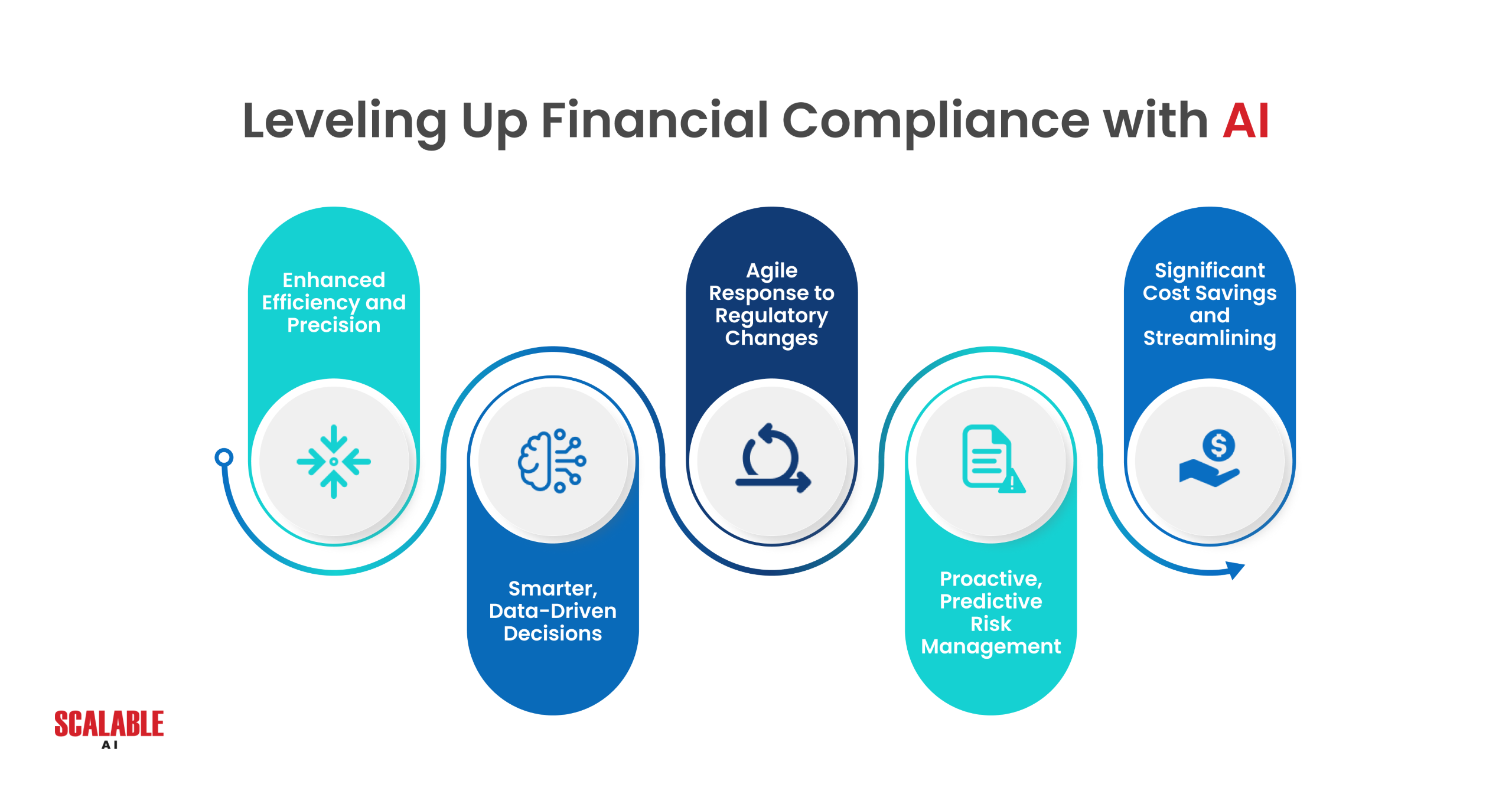In the rapidly evolving financial services industry, regulatory compliance is not merely a box to check—it’s a critical element of maintaining trust and safeguarding operations. However, as financial institutions embrace digital transformation, they face an array of data hurdles that complicate compliance efforts. These challenges are particularly pressing for Data and AI companies, which are increasingly central to the financial sector’s technological ecosystem.
The Data Deluge: A Double-Edged Sword
Financial institutions generate and manage vast amounts of data daily. This data, while essential for driving business insights and enhancing customer experiences, also presents significant compliance challenges. The sheer volume of data makes it difficult to ensure that all information is handled in accordance with regulatory requirements. Additionally, the complexity of modern financial transactions, which often involve multiple jurisdictions and regulatory frameworks, adds another layer of difficulty.
For Data and AI companies, the challenge is twofold: not only must they manage their own data in compliance with regulations, but they must also provide solutions that enable their financial services clients to do the same. This requires a deep understanding of the regulatory landscape and the ability to develop tools that can handle data efficiently and securely.
Navigating the Regulatory Maze
The financial sector is subject to a vast array of regulations, including anti-money laundering (AML) laws, the General Data Protection Regulation (GDPR), and the California Consumer Privacy Act (CCPA), among others. Each of these regulations has its own set of requirements for data management, storage, and reporting. For Data and AI companies, the challenge lies in designing systems that can adapt to these varying requirements without compromising on performance or security.
One of the key strategies for overcoming these challenges is the implementation of robust data governance frameworks. These frameworks provide a structured approach to managing data, ensuring that it is collected, stored, and used in a manner that complies with all relevant regulations. This involves everything from establishing clear data ownership and accountability to implementing data classification schemes and access controls.
Leveraging AI for Compliance
Artificial Intelligence (AI) is playing an increasingly important role in helping financial institutions meet their compliance obligations. AI-powered tools can automate many of the tasks associated with regulatory compliance, such as monitoring transactions for suspicious activity, analyzing data for potential compliance risks, and generating reports for regulatory authorities.
For example, machine learning algorithms can be used to detect patterns in financial transactions that may indicate money laundering or fraud. These algorithms can analyze large volumes of data in real-time, identifying potential issues much faster than a human could. This not only helps financial institutions comply with AML regulations but also enhances their ability to protect against financial crime.
Moreover, AI can also be used to streamline the compliance process itself. For instance, natural language processing (NLP) tools can be used to automate the review of legal documents, ensuring that they comply with the latest regulations. This can significantly reduce the time and effort required to ensure compliance, freeing up resources for other critical tasks.

The Role of Cloud Computing
Cloud computing has emerged as a crucial enabler of regulatory compliance in the financial services sector. By leveraging cloud platforms, Data and AI companies can offer their clients scalable, secure, and compliant solutions that can handle the complex data management requirements of the financial industry.
One of the key benefits of cloud computing is its ability to provide real-time data access and analysis. This is particularly important for regulatory compliance, where timely reporting and responsiveness to regulatory changes are critical. Cloud platforms also offer enhanced security features, such as encryption and multi-factor authentication, which help protect sensitive financial data from unauthorized access.
Additionally, cloud-based solutions can be easily updated to comply with new regulations. This is particularly important in a regulatory environment that is constantly evolving. By using cloud platforms, financial institutions can ensure that their compliance systems are always up to date, without the need for costly and time-consuming manual updates.
Addressing Data Privacy Concerns
Data privacy is a major concern for financial institutions, particularly given regulations like GDPR and CCPA, which impose strict requirements on how personal data is collected, stored, and used. For Data and AI companies, this means developing solutions that not only comply with these regulations but also protect customer privacy in a way that builds trust.
One approach to addressing data privacy concerns is through anonymization and pseudonymization techniques. These techniques allow data to be used for analysis without exposing personally identifiable information (PII). This not only helps financial institutions comply with data privacy regulations but also enables them to gain valuable insights from their data without compromising customer trust.
Another important consideration is data minimization, which involves collecting only the data that is necessary for a particular purpose. This reduces the risk of non-compliance and limits the potential for data breaches. For Data and AI companies, implementing data minimization strategies can be a key differentiator in a competitive market.
The Future of Compliance in Financial Services
As the financial services industry continues to evolve, so too will the regulatory landscape. For Data and AI companies, staying ahead of these changes will be critical to maintaining a competitive edge. This will require ongoing investment in technology and innovation and a commitment to staying informed about the latest regulatory developments.
Looking ahead, we can expect to see increased collaboration between regulators, financial institutions, and technology providers. This collaboration will be essential for developing new compliance frameworks that can keep pace with the rapid advancements in technology. For Data and AI companies, this represents both a challenge and an opportunity—to lead the way in creating the next generation of compliance solutions that are not only effective but also scalable and adaptable.
Conclusion
In conclusion, regulatory compliance in the financial services industry is a complex and ever-evolving challenge. However, with the right tools and strategies, Data and AI companies can help financial institutions overcome these challenges and turn compliance into a competitive advantage. By leveraging AI, cloud computing, and robust data governance frameworks, these companies can ensure that their clients remain compliant, secure, and ahead of the curve.
Read Whitepaper Data Dilemmas: Solving Financial Services Challenges
